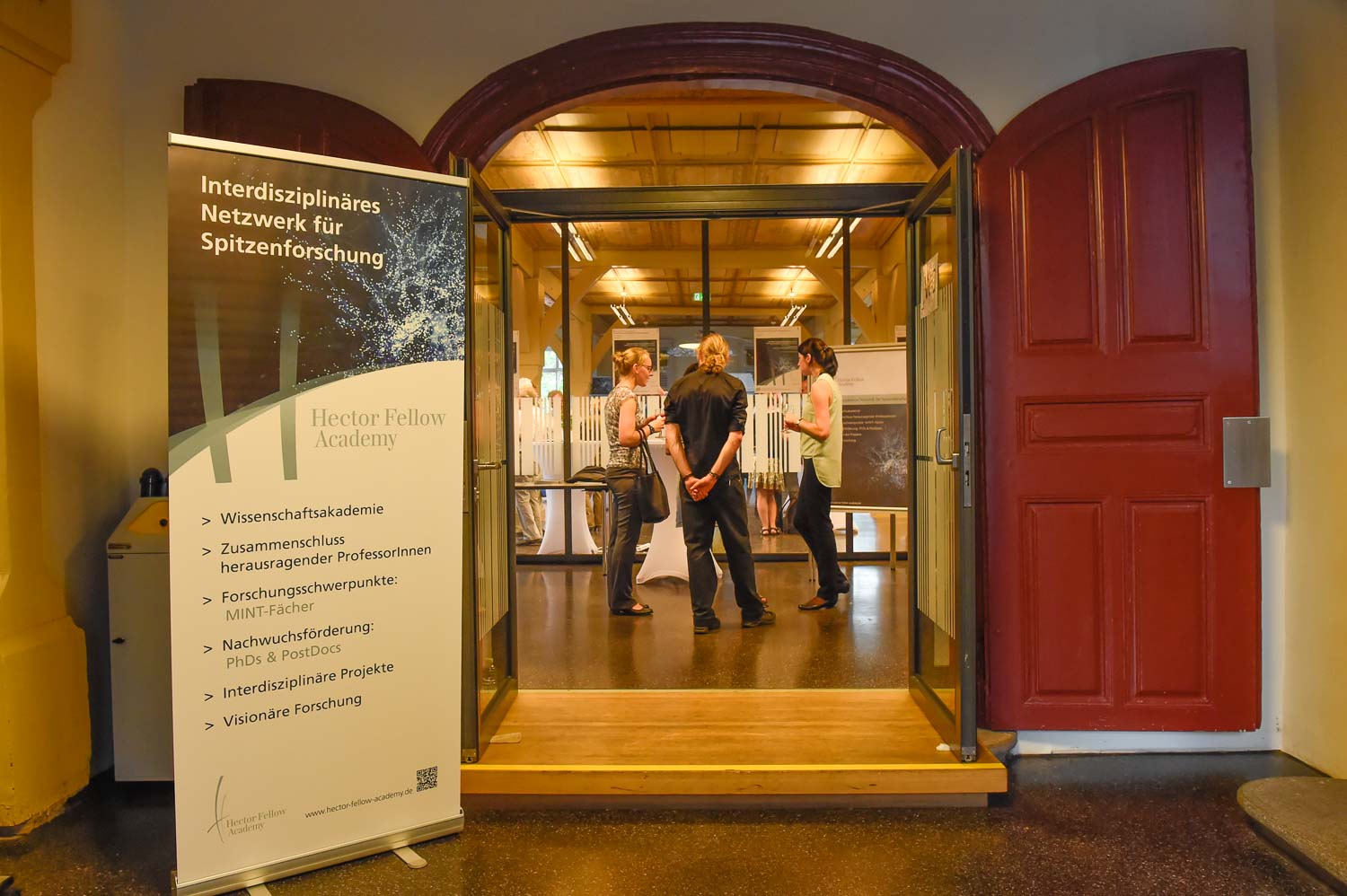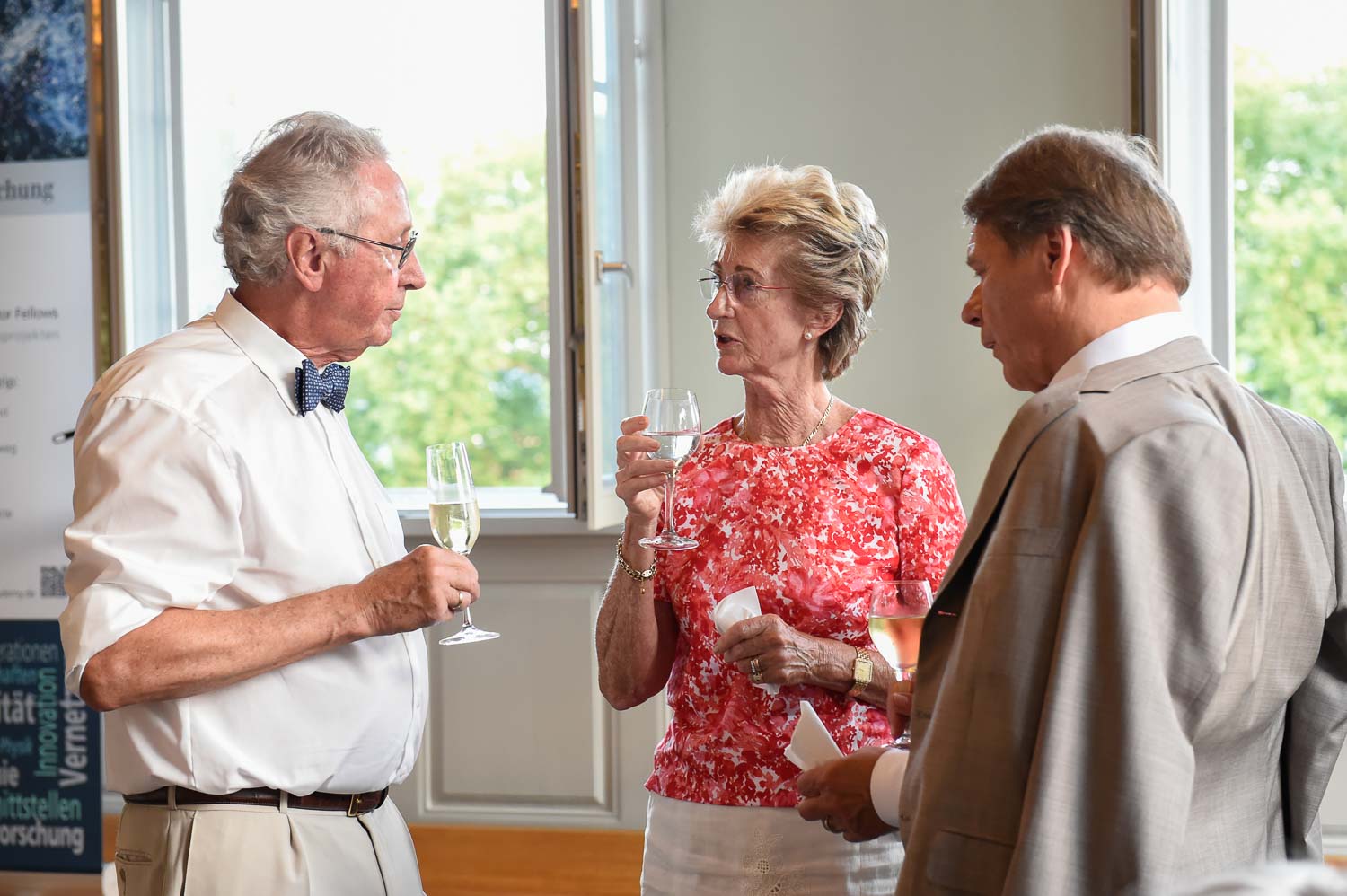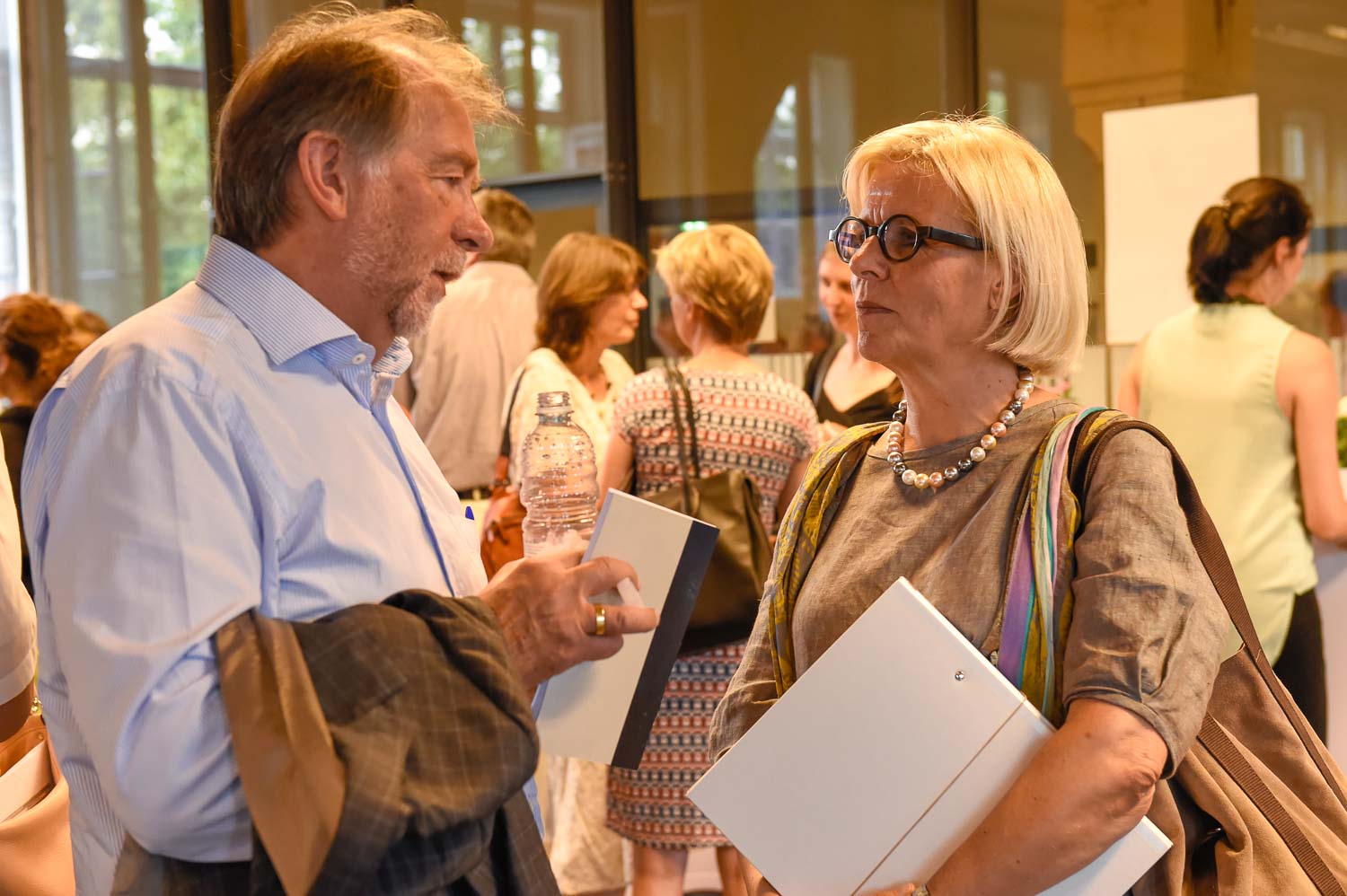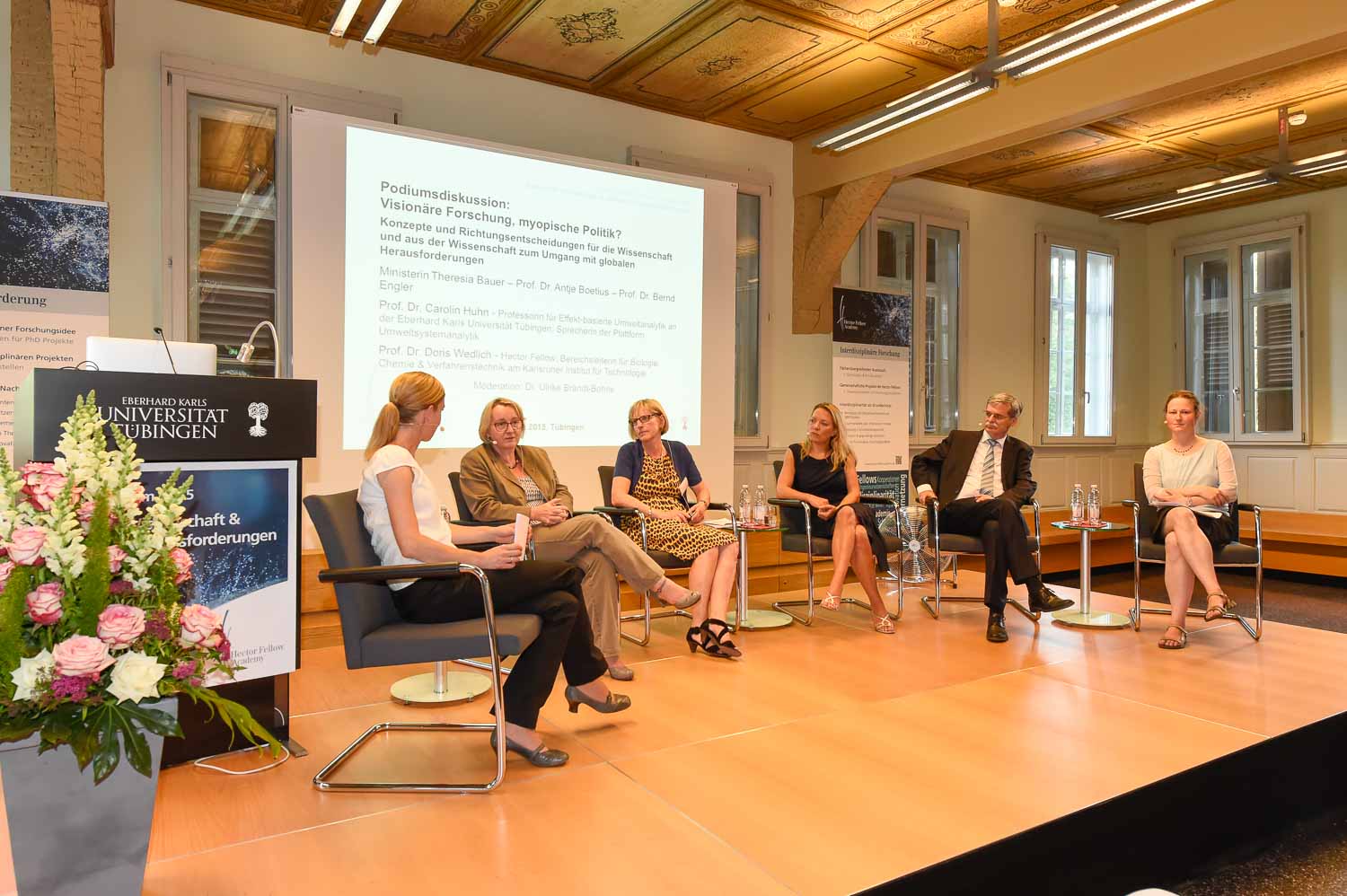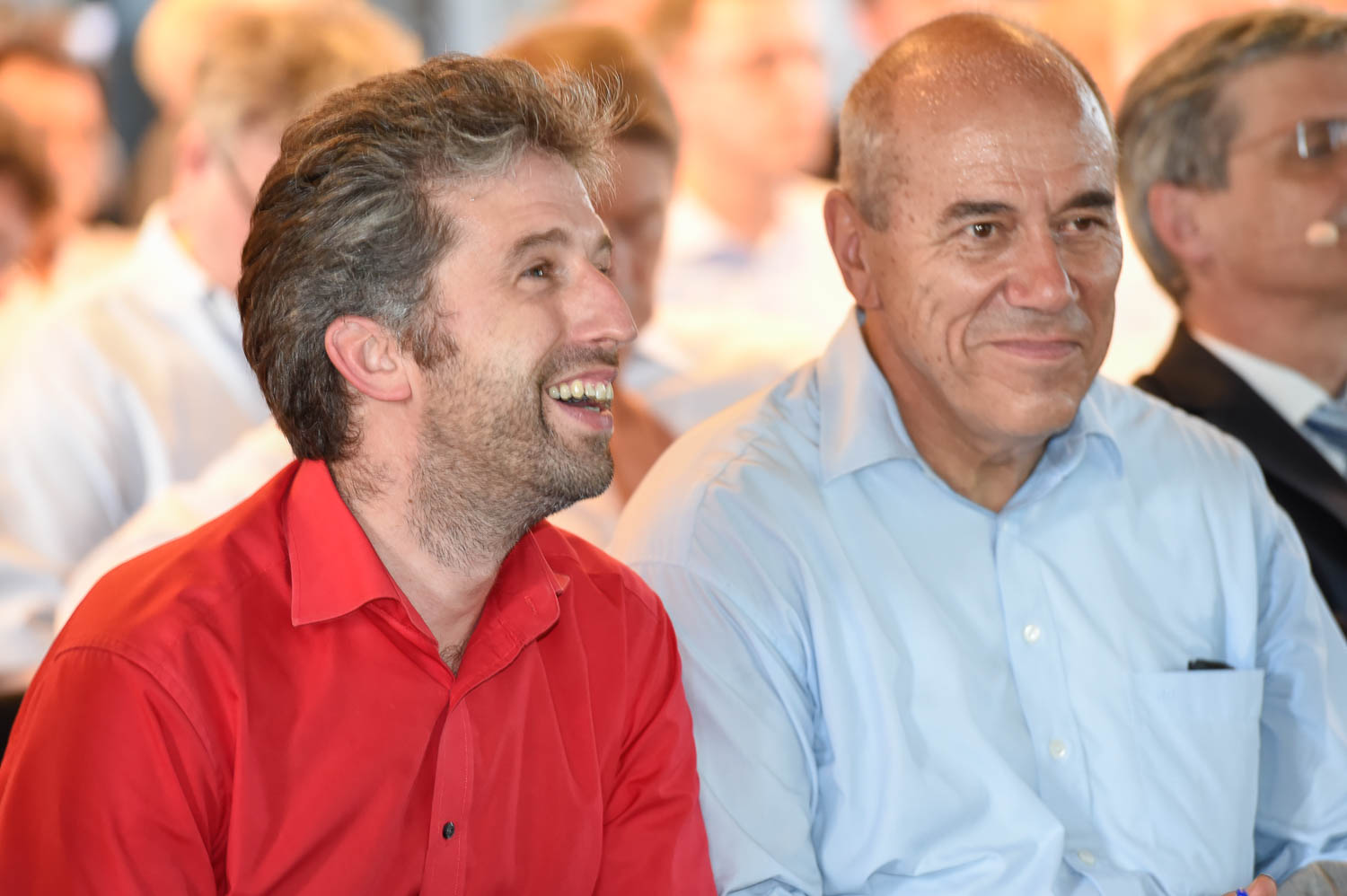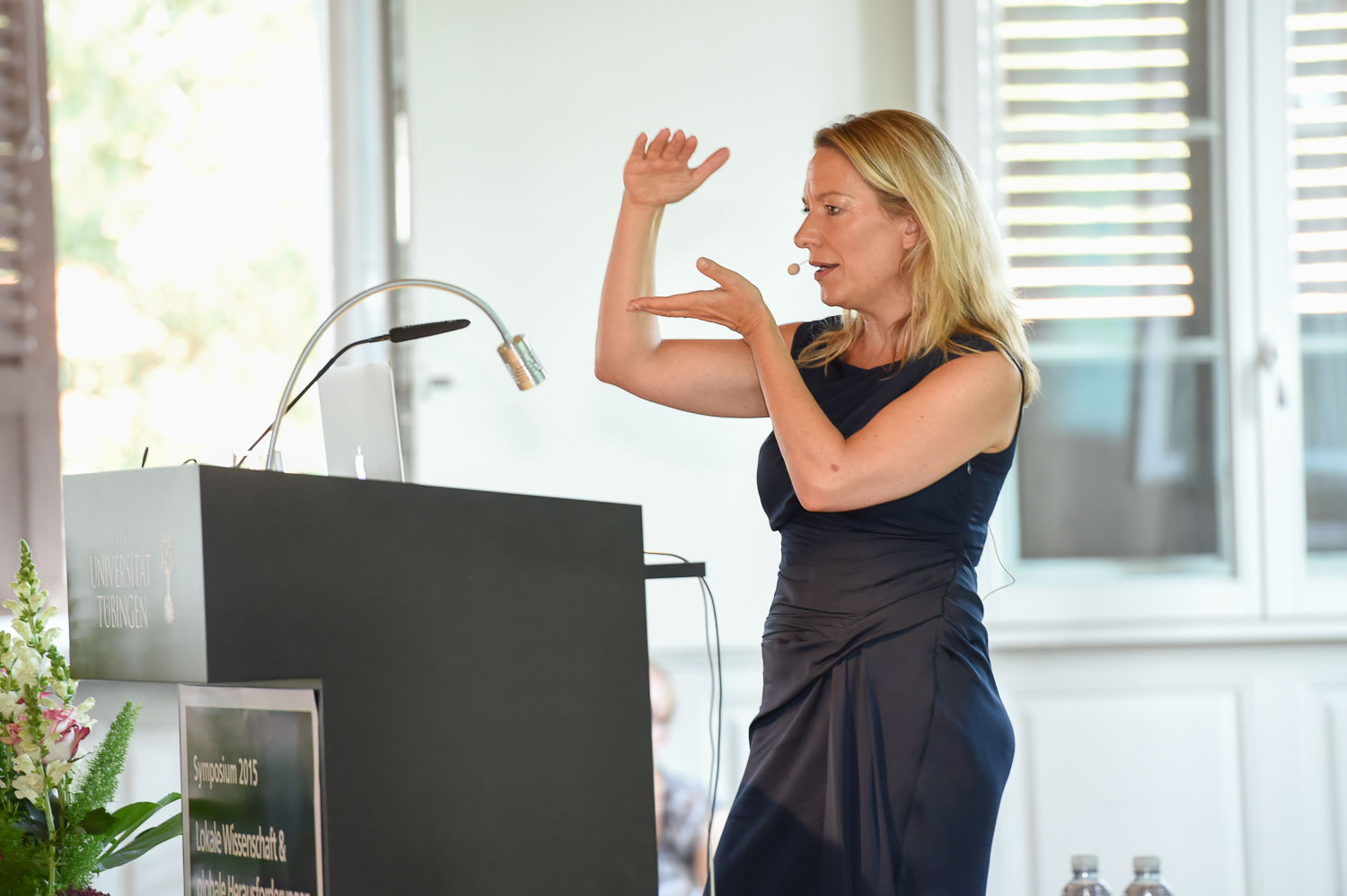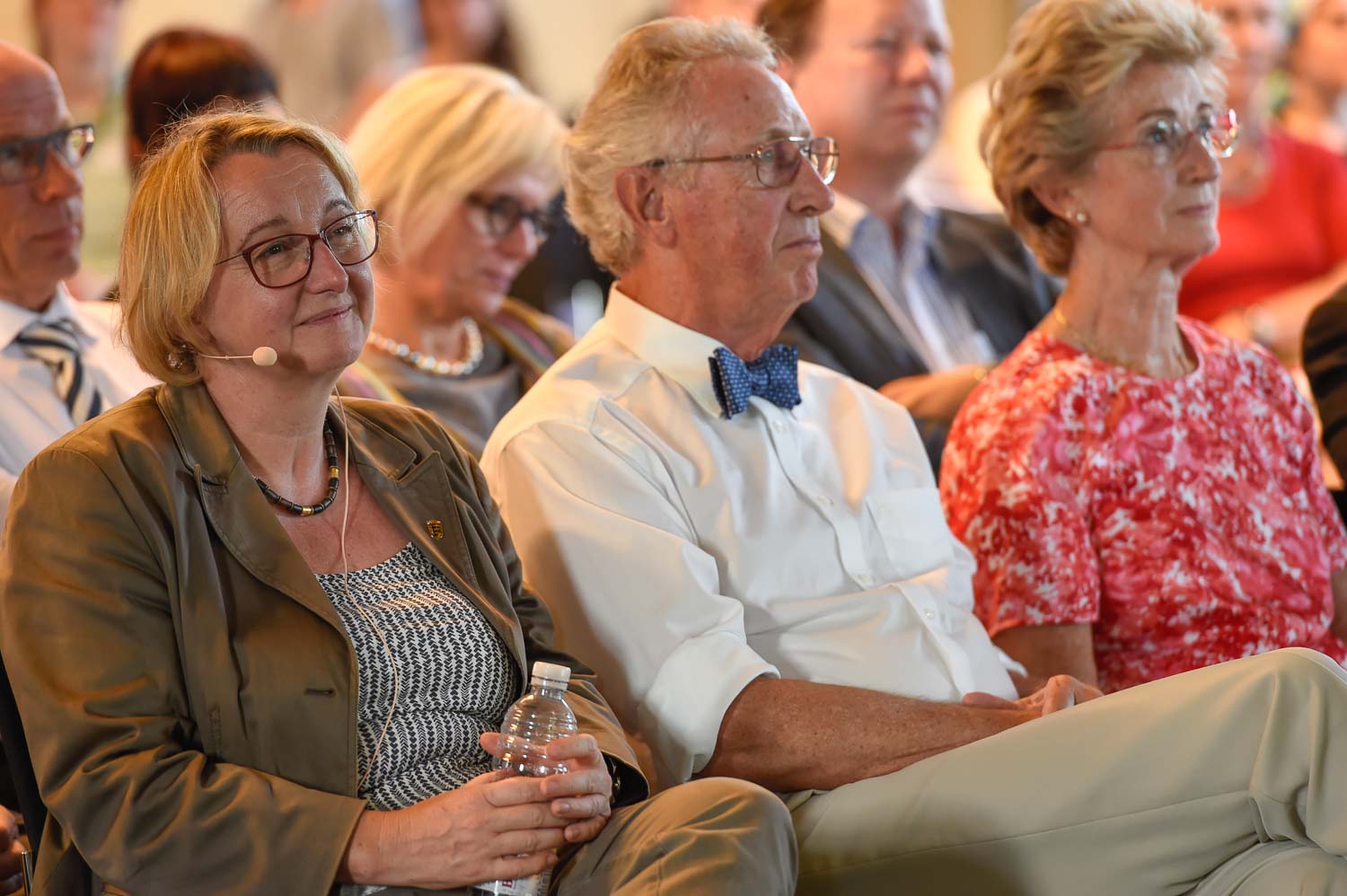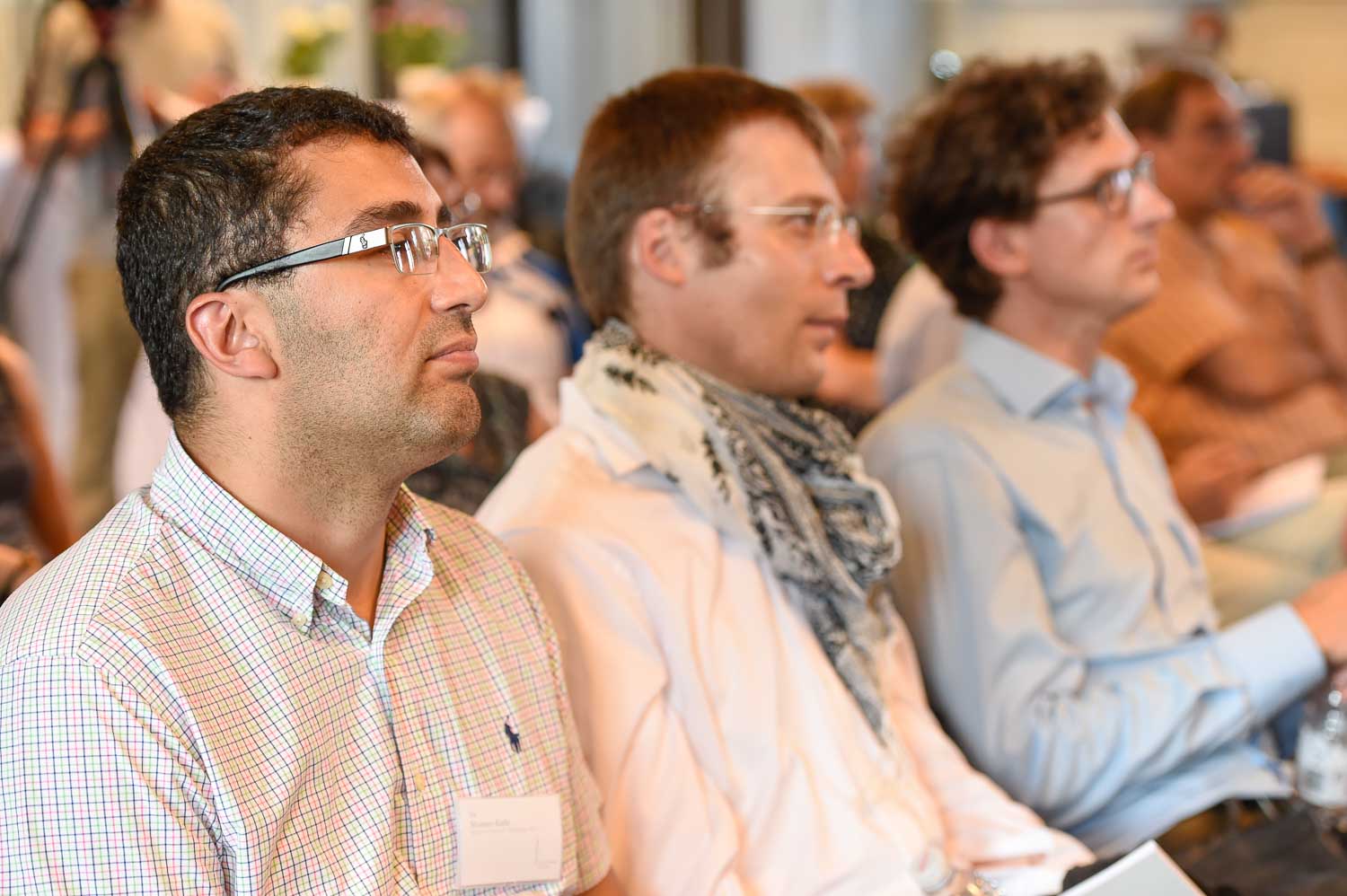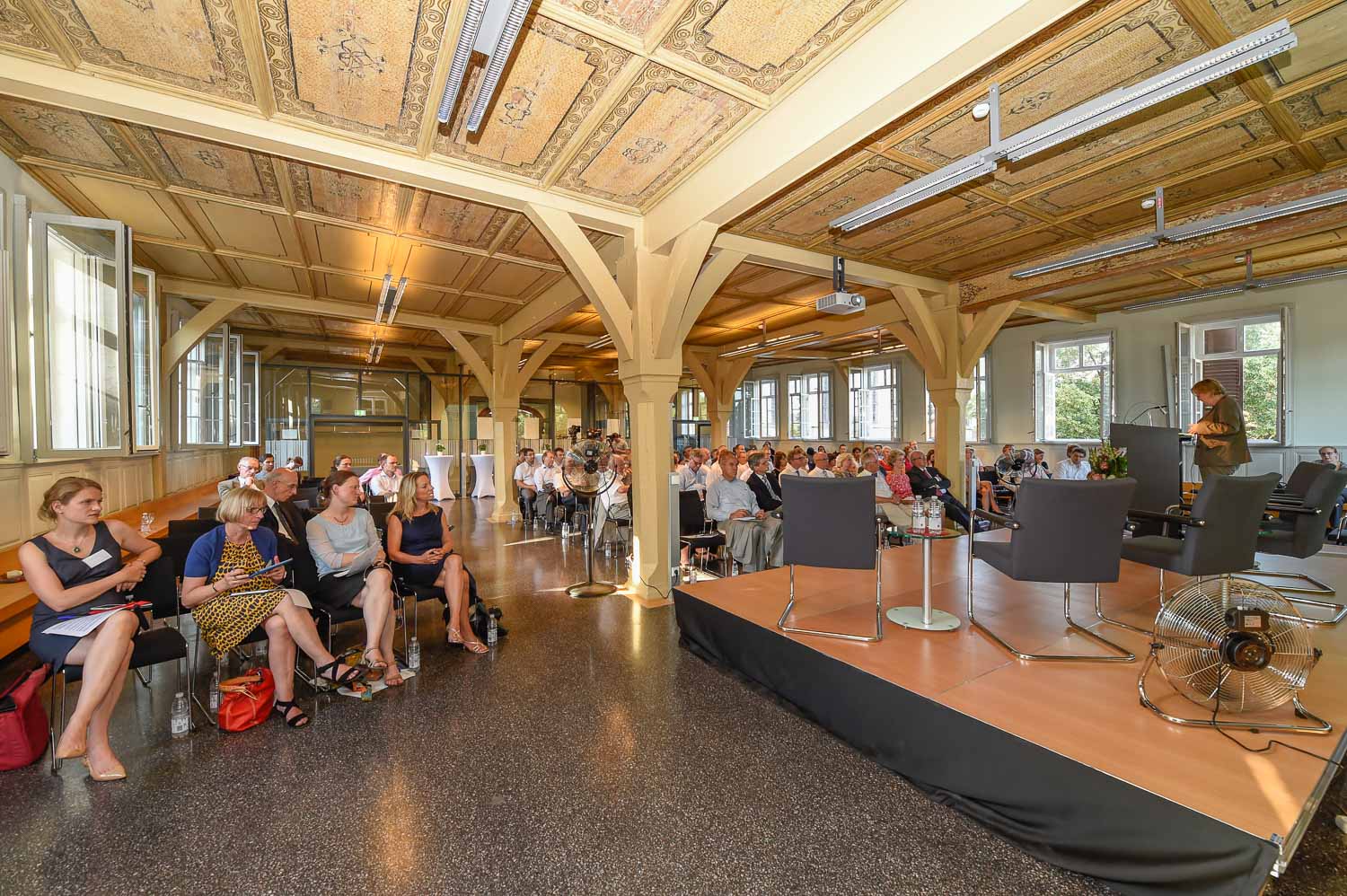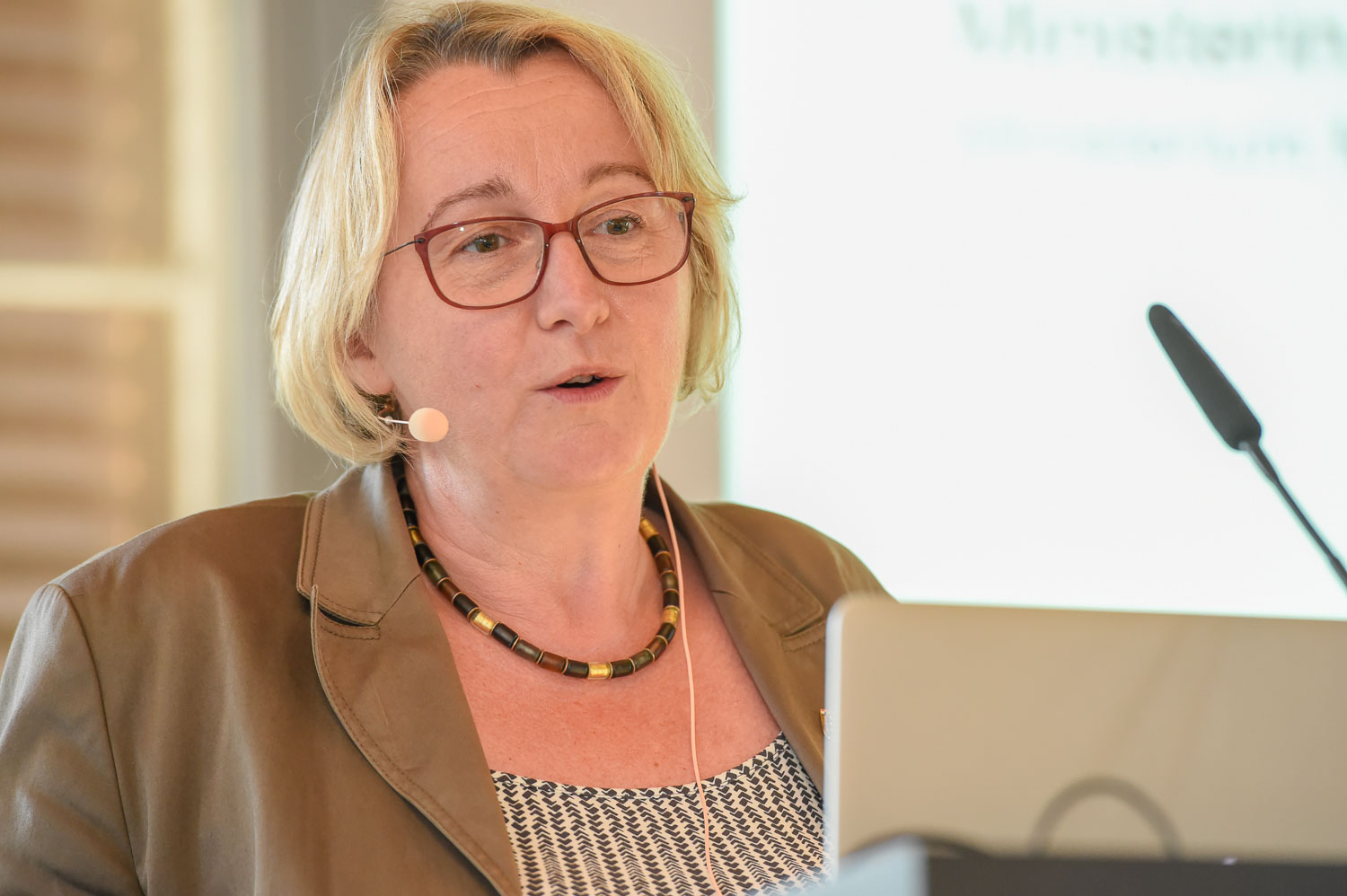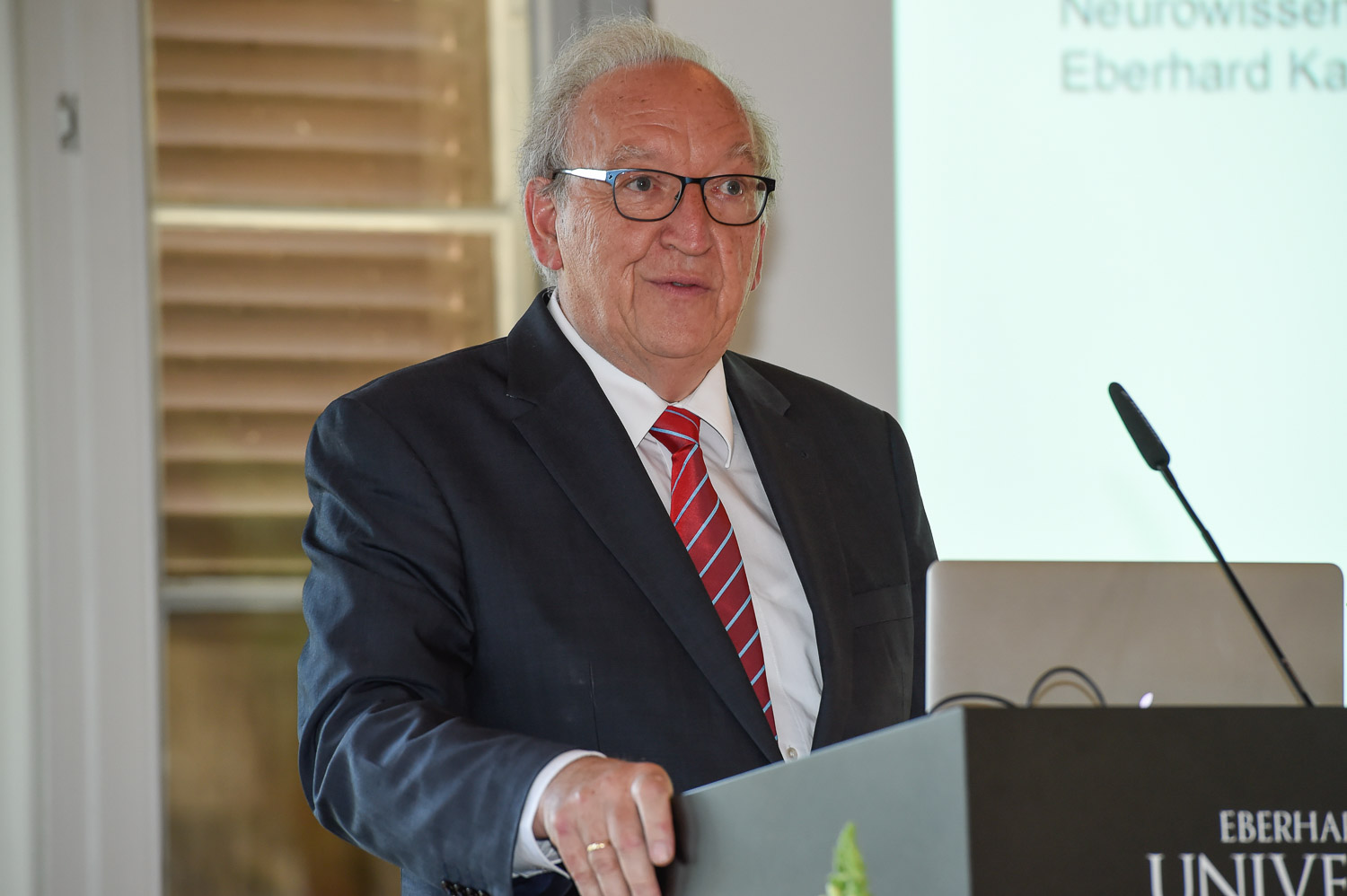Local Science & Global Challenges
Science Evening 2015
The first public Science Evening of the Hector Fellow Academy was held on 02nd, July 2015 in cooperation with the University of Tübingen. Representatives of science and politics were invited to discuss the topic “Local Science and Global Challenges”.
Professor Bernd Engler, president of the University of Tübingen and Professor Eberhart Zrenner, Hector Science Award winner 2013 and organizer of this event, greeted around 90 guests who had come to Tübingen at record-breaking summer temperatures.
During her speech Theresia Bauer, Minister of Science, Research and the Arts in Baden-Württemberg, emphasized the central responsibilities of science to ask the right and relevant questions with respect to addressing global challenges. She also pointed out that good research policy has to ensure and protect academic freedom. For this purpose the minister furthers “Reallabore” (approx.: practical lab), in which representatives of sciences, politics and government work together on practical projects. She regards the creation and protection of free spaces for scientist as the main task of good research politics. Right now this freedom is threatened through the dependence on short-term third-party funds, the late academic independence and because of the focus on applicable research. According to her to control these threats it is necessary to have a better balance of project and basic funding of the universities.
Theresia Bauer
Research Policy & Global Challenges
Talk on "Short-term measures or long-term strategy? Perspectives of research policy to solve global challenges".
Video in German
Professor Antje Boetius from Max-Planck-Institute for Marine Microbiology in Bremen presented insights into the mysterious deep-sea. She raised the question for instance, how species in the wide and deep ocean find each other for mating. Often during expeditions on the see ground new species are being identified, which are never again met afterwards. In what way this points to the extinction of these species, couldn’t be answered until now. She criticizes, that only that kind of research is funded, which aims to enables economic growth with the help of the oceans. She described the future of the ocean as “warm, high, acidic and low in oxygen”. Against this background and the significant meaning of the ocean for mankind, she regards a better understanding of processes and activities in deep-sea as central. For this purpose bringing together and combining knowledge gained in various disciplines is essential.
Antje Boetius
The future of the ocean
Talk on the topic "Future Ocean — Strange Worlds Underwater, Big Problems Above Water".
Video in German
Viewpoints presented in both speeches were afterwards discussed together with Professor Bernd Engler, Professor Carolin Huhn (Platform Environmental System Analysis, University of Tübingen) and Professor Doris Wedlich (Head of Division for biology, chemistry & process engineering, Karlsruhe Institute of Technology). The participants talked about the responsibilities of different stakeholders as well as essential framework conditions in order to solve global challenges. Here the relevance of interdisciplinary research consortia was highlighted, where both fundamental and applied research should be taken into account. In addition, a dialogue and cooperation between partners from academic, political, economic and social fields is required.
Panel discussion
Video in German
Wissenschaftliche Vorträge
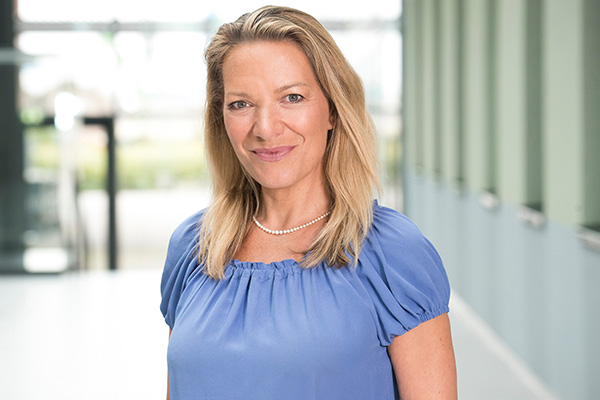
Antje Boetius
Biology
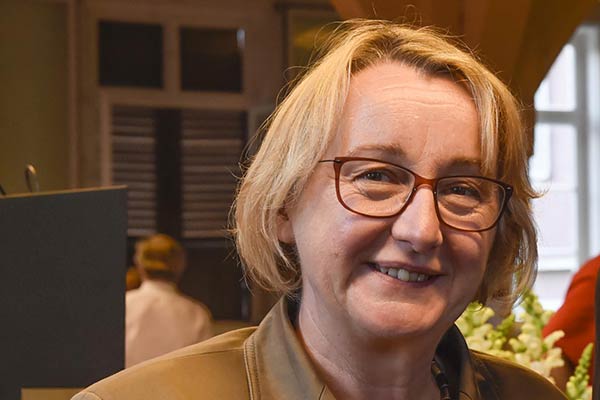
Theresia Bauer
MinisterMinister for Science, Research & the Arts Baden-Württemberg

